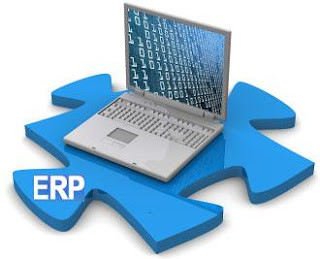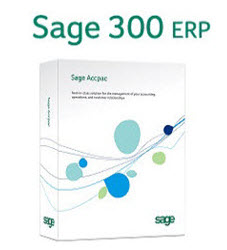1 min read
Sage PFW ERP Retirement Date is March 2014 - 4 Things to Know
As ERP consultants who support many Sage PFW ERP customers, we want to make sure everyone knows that Sage has announced the official retirement of...


As an ERP provider, it is very easy to assume that everyone knows what we are talking about when we use all of our acronyms like ERP, CRM, EFT, and all the trillion others we slip into conversations on a regular basis. So for this blog I will be explaining the what, why, when and how of ERP, a.k.a Enterprise Resource Planning in an easy-to-understand lingo for people who don’t work in the I.T Industry – see, there I go again… TECHNOLOGY Industry!
Let’s start with the what. Enterprise resource planning in itself is a little overwhelming. What does it really mean? According to Wikipedia Enterprise resource planning (ERP) systems integrate internal and external management information across an entire organization, embracing finance/accounting, manufacturing, sales and service, customer relationship management, etc. ERP systems automate this activity with an integrated software application. So basically, ERP is software for business. It incorporates all departments with a strong emphasis on the accounting and financial side of things. It allows management to keep track of everything across the entire organization and therefore, enables a more effective, transparent and profitable business.
Now let’s look at the Why. The purpose of ERP is to facilitate the flow of information between all business functions inside the boundaries of the organization and manage the connections to outside stakeholders. Having a system in place where all departments are talking to each other significantly reduces the risk of error, increases customer satisfaction and grows profitability. The accounting side is just the basics and once that is in place you can start adding all sorts like web-stores, Human Resource management systems, Alerts & Workflows, Business Intelligence, Electronic fund transfers, and more! If you have the money you can build a custom system that runs your business like clockwork, saving hundreds of thousands of dollars every year.
When is a good question. Not every business will be ready to invest in ERP so here are 5 signs that your business is ready to consider it.
1.) Multiples—multiple locations, multiple currencies, multiple cross-border vendors/customers.
2.) Reporting - The most commonly used tool to get critical information out of the business is a manual, labor-intensive process.
3.) Information Availability—you have more people within your organization who need access to important customer data, and the only way they can get that is through the users on your accounting system.
4.) Inventory Complexity—your inventory management requirements have become significantly more complex.
5.) Software Dictators—your company cannot streamline or gain efficiencies in operations, as your software cannot facilitate the new processes.
Once you have decided it is time to start the search for the perfect ERP system the next question is HOW? How do you find the right system? How do you pick the right vendor? It can be quite daunting but the best advice I can give is to take your time.
Please remember that an ERP implementation is not something that consultants do to the client, like laying new carpet. Successful implementations are the result of a highly collaborative interaction between the consultant and the customer. There is no “one size fits all” in ERP, because not all businesses will have the same needs. The key to finding a company to work with will prove to be their availability for communication and their dedication to helping you find the best solution for your needs.
Plus Computer Solutions is an award-winning ERP software consulting firm serving Vancouver and the Lower Mainland of BC. With over 100 years of combined experience implementing over 2000 ERP systems, Plus has developed a methodology that enables us to perform a successful implementation, everytime. Because of our extensive skills and experience with ERP software, Plus restores confidence in ERP Implementation. Visit www.plus.ca for more information on our software solutions.
Specialties
Sage 300 ERP (Formerly Accpac), Intacct Cloud ERP, Sage CRM, Sage HRMS, Sage Fixed Assets, Sage ERP Training, Sage ERP Support, ERP Consulting

1 min read
As ERP consultants who support many Sage PFW ERP customers, we want to make sure everyone knows that Sage has announced the official retirement of...

1 min read
Rate Your Sage 300 ERP Software on a Scale of 1 to 10 Imagine you just got a yearly survey, where you were asked, how content have you been with...
What is life like for business owners who run a successful online web store integrated with their ERP system? Does their business practically run...